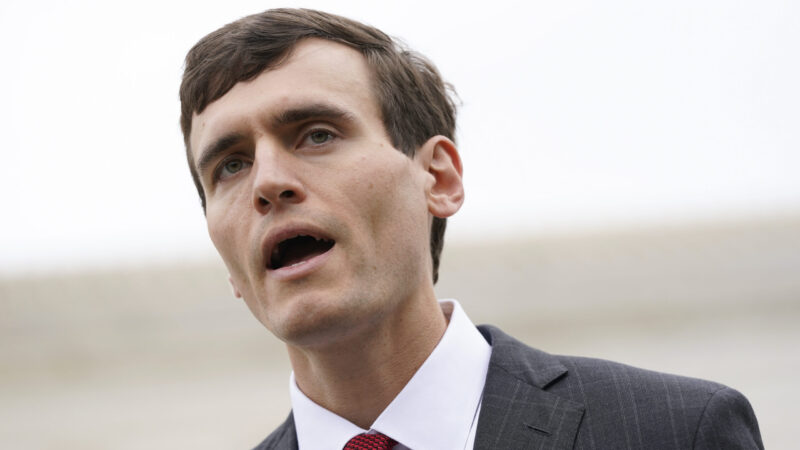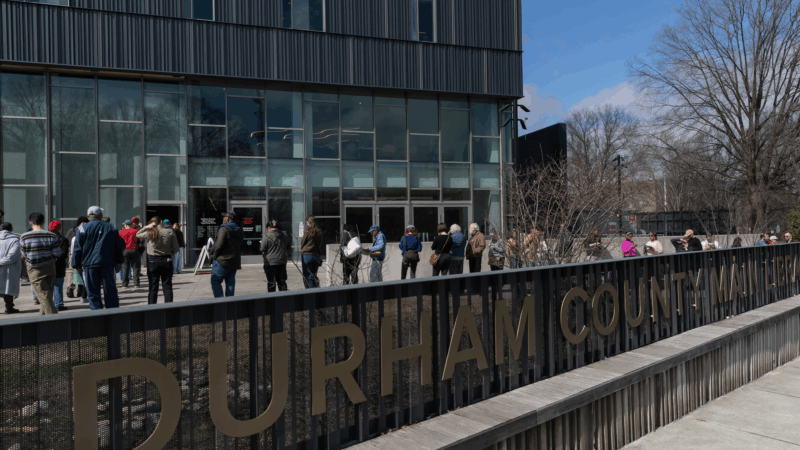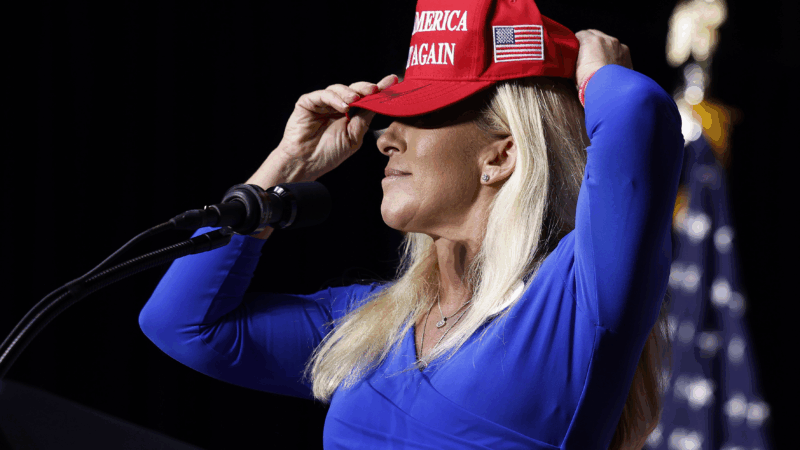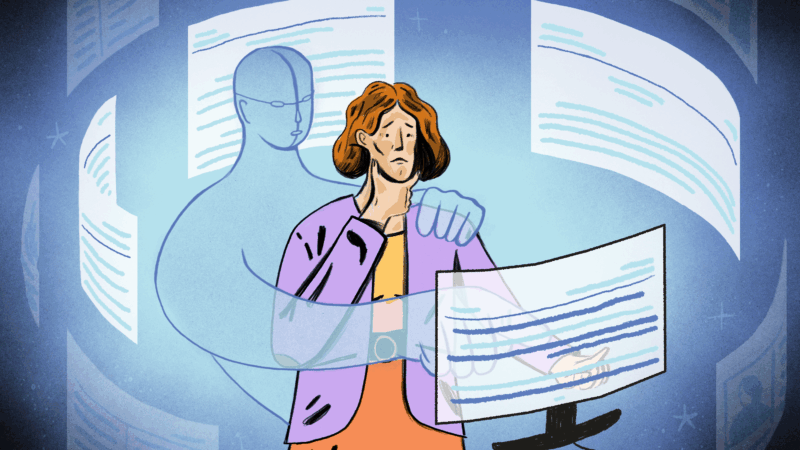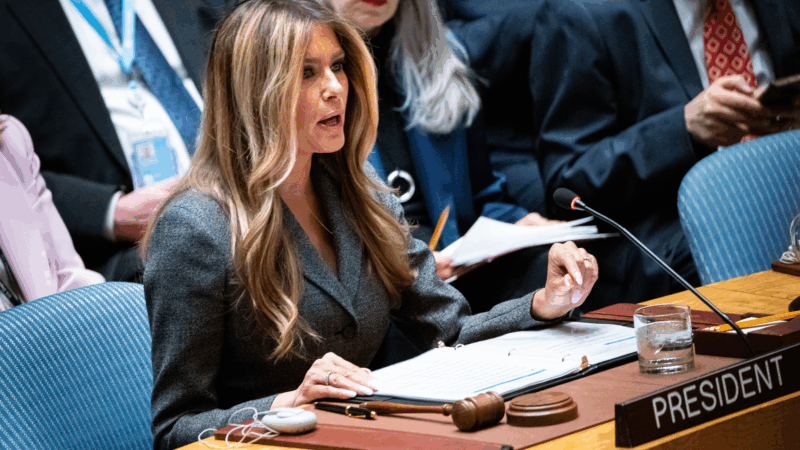Alabama, civic groups spar over law restricting assistance with absentee ballot applications
Alabama Solicitor General Edmund LaCour speaks with members of the press outside the Supreme Court on Capitol Hill in Washington, Oct. 4, 2022. LaCour's office on Wednesday, July 31, 2024, described a new ban on providing voters with absentee ballot application assistance as “commonsense ballot integrity,” while lawyers challenging the restrictions said they have halted important civic work in the community.
BIRMINGHAM, Ala. (AP) — The Alabama attorney general’s office on Wednesday described a new ban on providing voters with absentee ballot application assistance as “commonsense ballot integrity,” while lawyers challenging the restrictions said they have halted important civic work in the community.
The diverging depictions of the new law were aired during a federal hearing on Alabama’s request to dismiss a lawsuit challenging the statute. U.S. District Judge R. David Proctor did not indicate when he would rule, but said he understood the two sides want a decision before the November general election.
The new law, originally known as Senate Bill 1, puts restrictions on who can fill out and return a voter’s application form to receive an absentee ballot. It makes it illegal to distribute an absentee ballot application that is prefilled with information such as the voter’s name, or to return another person’s absentee ballot application. And it is a felony punishable by up to 20 years in prison to give, or receive, a payment or a gift “for distributing, ordering, requesting, collecting, completing, prefilling, obtaining, or delivering a voter’s absentee ballot application.”
Alabama is one of several Republican-led states to enact limitations on voter assistance. State Republicans said the measure is needed to combat “ballot harvesting,” a pejorative term for the collection of multiple absentee ballots. The Alabama State Conference of the NAACP, the League of Women Voters and other groups filed a lawsuit challenging the new statute, which they say “turns civic and neighborly voter engagement into a serious crime.”
During the hearing, Alabama Solicitor General Edmund LaCour described the law as a ballot-integrity measure that prevents paid operatives from corralling votes through absentee ballots.
“SB1 helps fight fraud and confusion by ensuring that the absentee ballot application process remains in the hands of voters,” LaCour told Proctor. He argued that there are exceptions for disabled voters who need assistance.
Organizations challenging the Alabama law said it infringes on free speech rights and is unconstitutionally vague about what type of conduct would be illegal. They also argued that it runs afoul of the federal Voting Rights Act.
“SB1 does not pass constitutional muster,” Valencia Richardson, an attorney with the Campaign Legal Center, told Proctor.
The new law has forced voter outreach groups to cease some operations, Richardson said, “because they are afraid of going to jail.”
Kathy Jones of the League of Women Voters of Alabama said the group has “basically had to stand down” from helping people with absentee ballot applications because of the uncertainty and fear.
“We are not willing to put our members at risk,” Jones told The Associated Press on Tuesday.
Proctor posed several hypothetical questions during the hearing, including whether a compensated person at an information booth or table would run afoul of the law if they had a stack of blank ballot applications to hand out to interested voters. The state replied that it would.
William Van Der Pol, a lawyer with the Alabama Disabilities Advocacy Program, told Proctor that it is wrong for the state to suggest that civic organizations are in the business of buying votes or inappropriately influencing voters.
“That is the exact antithesis of their mission,” he said.
North Carolina and Texas have primary elections Tuesday. Here’s what you need to know
The midterm elections are officially underway and contests in Texas and North Carolina will be the first major opportunity for parties to hear from voters about what's important to them in 2026.
Trump promised the MAGA base no new wars. Then he went to war with Iran
President Trump promised his "Make America Great Again" voters an "America First" foreign policy. With the war in Iran, he's testing MAGA world's willingness to be flexible on one of its core beliefs.
Kristi Noem set to face senators over DHS shutdown, immigration enforcement
The focus of the hearing is likely to be on how Kristi Noem is pursuing President Trump's mass deportation efforts in his second term, after two U.S. citizens were killed by immigration officers.
College students, professors are making their own AI rules. They don’t always agree
More than three years after ChatGPT debuted, AI has become a part of everyday life — and professors and students are still figuring out how or if they should use it.
Melania Trump presides at UN Security Council meeting as U.S. attacks Iran
U.S. first lady Melania Trump presided over a U.N. Security Council meeting on Monday focusing on children in conflict, as the United States has joined Israel in attacking Iran.
In Vermont, small town meetings grapple with debate on big issues
Typically concerned with local issues, residents at town meetings in Vermont and elsewhere increasingly use the forum to debate polarizing national and international events.

